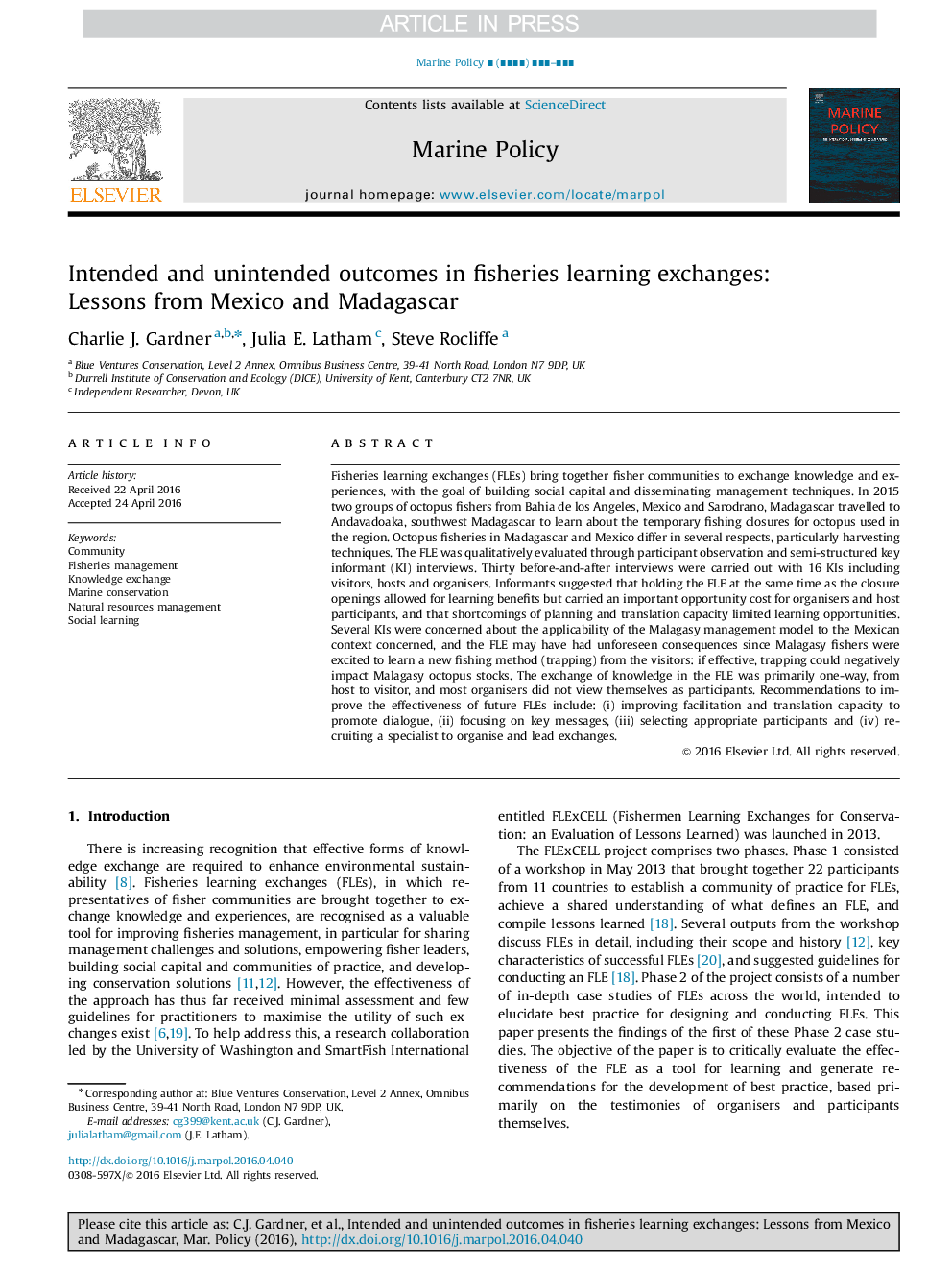ترجمه فارسی عنوان مقاله
نتایج منتخب و ناخواسته در مبادلات آموزش ماهیگیری: درسهای مکزیک و ماداگاسکار
عنوان انگلیسی
Intended and unintended outcomes in fisheries learning exchanges: Lessons from Mexico and Madagascar
| کد مقاله | سال انتشار | تعداد صفحات مقاله انگلیسی |
|---|---|---|
| 131781 | 2017 | 8 صفحه PDF |
منبع

Publisher : Elsevier - Science Direct (الزویر - ساینس دایرکت)
Journal : Marine Policy, Volume 77, March 2017, Pages 219-226
ترجمه کلمات کلیدی
جامعه مدیریت شیلات، مبادله دانش، حفاظت دریایی، مدیریت منابع طبیعی، یادگیری اجتماعی،
کلمات کلیدی انگلیسی
Community; Fisheries management; Knowledge exchange; Marine conservation; Natural resources management; Social learning;

